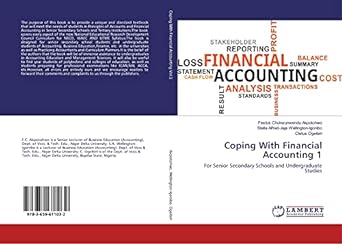Question
For publicly traded companies, the Sarbanes-Oxley Act prescribes fines and prison time for knowingly falsifying financial information. Further, investors of the company may be able
For publicly traded companies, the Sarbanes-Oxley Act prescribes fines and prison time for knowingly falsifying financial information. Further, investors of the company may be able to successfully sue the company and its owners for civil damages. Small-business owners should exercise caution, as not understanding accounting practices and standards is not a defense for fraudulent reporting. If a reasonable person believes a manger should have known about fraud in the business, this may be enough to allow the jury to side with the plaintiff.
Unified Health Corporation has several current notes receivable on its year-end balance sheet. While collection seems certain, it may be delayed beyond one year - which means that it should be considered long-term. Because of this, you, as the controller of the company, want to re-classify these notes as non-current. Health's treasurer also thinks that collection will be delayed but does not favor re-classification because this will reduce the current ratio from 1.5:1 to .8:1. This reduction in current ratio is detrimental to company prospects for securing a major loan with the bank. Plus the treasurer wants to place an additional stock offering to investors by year-end.
Are any stakeholders really affected by this re-classification is the notes are collected on time?
What would your actions be as the controller who works for the treasurer?
Step by Step Solution
There are 3 Steps involved in it
Step: 1

Get Instant Access to Expert-Tailored Solutions
See step-by-step solutions with expert insights and AI powered tools for academic success
Step: 2

Step: 3

Ace Your Homework with AI
Get the answers you need in no time with our AI-driven, step-by-step assistance
Get Started


